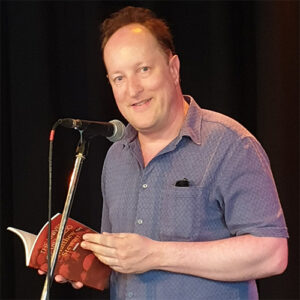Beginnings and favourites. I enjoyed Keats at O ‘Level, but not as much as Maths and Physics. The first poetry I fell hard for, when I was about 13, was Paul Simon’s: “I hear the drizzle of the rain / Like a memory it falls…”. A few years later, the dazzle of Clive James’s Observer TV critiques led me to his song lyrics for Pete Atkin: “And here is all these people have / and everything they can’t believe / the beach the poor men never reach / the shore the rich men never leave”; or this: “Touch has a memory / better than the other senses / Hearing and sight fight free / touching has no defences”, which points us back to Keats.
I’m not sure what sort of poetry I prefer. “What kinds of poetry are there?”, asks the protagonist in in Ben Lerner’s Leaving the Atocha Station when asked what kind he writes. What I know is that I love some, and would hate to be without it, whereas most does little for me. Gamblers will persist for longer on a one-armed bandit that pays out less regularly (studies have shown). It’s like that for me with contemporary poetry: I feed my token and pull the handle. Nothing. I’m on the point of quitting when coins jump from the machine and cover my shoes. Usually there’s some wit on show, sometimes some form. I admire clarity and vivid meaning, I relish the reflection that follows the reading, and the re-reading to uncover the tricks. Let me mention some writers whose every collection I’ve tracked down and bought: Kay Ryan, Connie Wanek, Louis Jenkins, Jeffrey Harrison. Among the more celebrated Brits, give me Hugo Williams and Christopher Reid. I owe Michael Laskey, but I’d love his poems if I didn’t.
With the low payoff rates of the poetry fruit machine, it’s easy to let your attention lapse, and not to give poems their due. Reviewing keeps me honest in this regard, though I prefer to review books about which I have some inkling of admiration in advance. Poems ask to be closely read, and too few are, so it feels like a service to a community, even if the real motives are more selfish.

